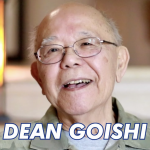
Mario Cooper
Mario Cooper, who was an important link between grassroots AIDS activists and the political establishment in the epidemic’s early decades, died May 29, 2015. He was 61.
In a recent POZ blog post, Sero Project executive director Sean Strub recalls his friendship with the late activist and recounts Cooper’s contributions to the fight against HIV/AIDS. “Some of us had to learn our activist skills over time, but for Mario it was in his genes,” writes Strub, pointing out Cooper’s ties with African-American leadership and the gay rights movement.
Cooper also contributed to POZ magazine, such as the 1994 article “Where We Are, Where We’re Going,” which details his thoughts on the troubled state of AIDS; the 1999 article “Two Nations Under Plague” in which he writes, “Wake up, my gay, white brothers and sisters! AIDS is ravaging people of color”; and the 1999 interview “The Mayor of Market Street,” in which he talks with San Francisco Mayor Willie Brown.
Upon learning of Cooper’s passing, other leaders of the HIV/AIDS community reflected on the legacy and memories of the activist. Below is a compilation of remembrances.

Mario with President Carter
Mario was both passionate and compassionate in his activism. He was one of those people who seemed to know everyone, and if he didn’t know them he made it his business to find out who they were. He will be sorely missed.
—Julian Bond, chairman of the NAACP from 1998 to 2009

Mario with President Clinton
Mario Cooper had an enormous impact on my life and the lives of many others. He was a trailblazer for me as a black gay man; he had been a White House aide to Jimmy Carter decades before I worked for Bill Clinton. And he was not afraid to speak truth to power, to call out his own party leaders, his colleagues in the gay community, or his friends in the black civil rights leadership, to do more about the HIV/AIDS crisis in black America.
I remember Mario as the friend and mentor who provided guidance and counsel, as the flirt who called me “stud” at the beginning of every conversation, and as the family man who remained true to the values of his Mobile, Alabama, roots in the civil rights movement. He forced America to pay attention to a public health crisis that many were all too willing to ignore. He saved many lives and will be missed by many more.
—Keith Boykin, author, TV commentator and public speaker. (Your can read Boykin’s own tribute to Mario on his blog here)

Mario at 1988 Democratic Convention
Very often when I turn on the lights in my home, I think of Thomas Edison. I take precious moments out of very busy days to reflect how such a powerful invention as electricity is rarely spoken of, or thought of in the context of its maker – Thomas Edison. A friend, Mario Cooper, soared into the heavens on beams of light a few hours ago. Not light made by Mr. Edison, but those of the eternal, celestial beams that soar throughout galaxies upon galaxies upon galaxies. Mario was a silent, warrior who raged! Many well-noted AIDS activists, myself included, stand on the shoulders of Mario. He opened, safe-locked, doors for so many of us. As a brilliant strategist, he conquered political and academic barriers on so many fronts for people living with HIV and AIDS. Leading for Life, a campaign founded by Mario in 1990s, was the fire that awakened silent giants—like the Congressional Black Caucus, the Urban League and NAACP—to “say something and do something” about an epidemic that was disproportionately killing Black people, like it continues to do so. Harvard AIDS Institute; Gay Men’s Health Crisis, AIDS Action Council and others have sustaining power today because of the brilliant leadership of Mario Cooper when these organizations were infants with big ideas.
Like Edison, we do not think of Mario Cooper when we witness so many accomplishments in HIV and AIDS. For those of us who still fight in the muddy waters of the AIDS epidemic, let us look to the heavens for a blazing streaming light and send Mario a great thank-you over the coming days, years and life. For HIV and AIDS has touched everything and everybody in our lifetime, as did Mario Cooper and Thomas Edison.
—Pernessa Seele, founder and CEO of Balm in Gilead, Inc.
Mario was the quiet unsung hero behind early connections between the gay community and the Clinton administration and was just as quietly responsible for getting Bob Hattoy, the famous “friend of Bill’s” who had AIDS, the chance to speak at the 1992 Democratic National Convention.
When Clinton was elected, Alexis Herman was his first public liaison before she became Secretary of Labor. She and Mario were extremely close; when we needed anything at the White House, Mario—through Alexis—was the one who got it for us. It was Mario who helped me arrange the historic April 17, 1993, Oval Office meeting with President Clinton. It sounds simple, but it took weeks and weeks of effort to make it happen.
Mario and I were close in those years and we also shared an alma mater, Middlebury College. We went back to Middlebury together, in the mid-90s, to participate on a panel about activism. He was shy and self-effacing, but his talk about being black and gay at very white Middlebury was riveting. His friend and mentor Ron Brown, who was head of the Democratic National Committee and labor Secretary of Commerce, was also a Middlebury graduate. Mario was devastated when Ron was killed in a plane crash.
—Torie Osborn, writer and activist, former executive director of the Los Angeles Gay and Lesbian Community Services Center and the National Gay and Lesbian Task Force
I am deeply saddened by the passing today of Mario Cooper, a former board chairman of AIDS Action Council and a friend and colleague of mine. At a time when it was still courageous to do, Mario openly acknowledged his being HIV positive and was a pioneer in advocating increased awareness of and action on HIV infection and AIDS by the Black community. Mario was bold in challenging community and congressional Black leaders to become engaged in the growing HIV epidemic in the Black community. In organizing the Leading for Life initiative, Mario put his own words into action that stands as a model for advocacy. Mario’s passing is a great loss, but his legacy of activism in the face of a crisis is a fitting memorial and an inspiration to those of us who continue to confront the challenges of the HIV epidemic.
—Ronald Johnson, Vice President of Policy & Advocacy, AIDS United
Mario Cooper was on the International Advisory Council of the Harvard AIDS Initiative from the early 1990’s through the mid 2000’s. As a member of our Council, he organized a unique policy and advocacy campaign of national African American Leaders from different walks of life, to create an awareness campaign entitled “Leading for Life”. This campaign drew attention to the fact that there had not yet been focused efforts to curb AIDS in minority communities in our country. Leading for Life was instrumental in briefing the Congressional Black Caucus and prompting them to propose $150 million in specific anti-AIDS programs for minority communities, which was then allocated by Congress. This was a lot of funding at the time, but was also perhaps the first funding specifically addressing the epidemic nationally focused on minority communities.
Not just at Harvard AIDS Initiative, but also for all of us working to end the AIDS epidemic, Mario was our strong and clear voice. He was always shining a light on the issues and problems in our response, and proposing how we could address those problems.
On a personal note, Mario was a good friend and a lovely person. He was always concerned about others, always listening and always caring. His heart was as big as his giant intellect. I love him and will miss him deeply.
—Ric Marlink, Professor of Public Health and Executive Director, Harvard AIDS Initiative
Mario Cooper was a founding Trustee of the International Association of Providers of AIDS Care (IAPAC), who challenged the association in its early days, to address the needs of communities being devastated by HIV/AIDS, particularly African-American communities in the United States. As one of three non-clinicians on the founding Board of Trustees, he used his legal and legislative expertise to help orient IAPAC’s early work around expanding access to HIV services for everyone, including people who are discriminated against, disenfranchised, marginalized, and stigmatized.
In large measure, IAPAC’s continuing work to increase HIV testing and treatment rates among key populations and to eliminate stigma and discrimination in healthcare settings, is a fitting legacy for his years of leadership on the IAPAC Board. May Mario rest in peace, and may his family and friends take comfort in knowing he is held in such high esteem by all who knew and were touched by him in the AIDS movement.”
—José M. Zuniga, PhD, MPH, President and Chief Executive Officer, International Association of Providers of AIDS Care
I met Mario in the ’90s when he joined the AIDS Action Foundation Board. We became comrades in arms immediately. He was charismatic, funny and very smart. Mario decided to run for the Chair of the board. The competition did not take him seriously, partly because he was new and partly because he was Black (I was the only other Black person on the board). They didn’t think Mario could get the votes. They were wrong.
Mario organized, as only Mario could. When the ballots were counted, he was he new chair. Mario was the person who coined the phrase “Black Up.” He had not been really involved in ACT UP, but he understand the power of that kind of activism and he knew we needed an ACT UP style energy to mobilize Black communities. We worked together to bring together the first serious gathering of national Black leaders to respond to the AIDS epidemic in the Black Community.
One day, he called me up to talk about a new saliva based HIV test. I immediately cited a host of reasons why it was a bad idea. He invited me to join the community advisory committee for the new oral HIV test. I went because Mario invited me. I didn’t think it would work. I was wrong.
Mario was fierce and courageous, but he was kind and very gentle. I admired his courage and tenacity, but, even though I hadn’t seen him in years, I will forever remember his gentle spirit and kind smile. Farewell and God speed, beloved one.
—Phill Wilson, Founder and Executive Director, Black AIDS Institute
I met Mario in the early 1990s while working at Johnson & Johnson to push FDA to approve the first home test for HIV. Mario provided excellent counsel, for sure. He’s a brilliant political strategist — and getting an HIV test approved was all about politics, not science.
The test was developed in the 1980s, worked flawlessly in clinical trials and an approval application was filed with FDA in 1987 — FDA responded to the application by stating it wouldn’t even consider approving a home test. After several lawsuits, the Agency backed down.
But it was political arm-twisting that got FDA to finally look at the data and approve the test. Mario was always available to provide keen insights into AIDS policy and what the White House was thinking. FDA ultimately approved the home test in 1996 — FDA Commissioner Kessler cited the test’s “new” technology as the reason — it was the same exact technology from 1987, but the politics — which Kessler didn’t mention — had changed.
It was people like Mario who forged that path. Mario knew better than anyone -- let the politicians like Kessler say whatever they want, just focus on the results.
Mario was so much more than just a brilliant political player. He had a warm, gentle charisma and, despite bouts with depression, perhaps paradoxically an innate optimism about affecting change. His stories — whether about experiences in the Oval Office in the Carter White House or AIDS events in the Clinton White House never focused on his role, but that of others.
That was Mario’s greatest strength - he was about making things happen, helping others, but not seeking or taking credit. In his last months of life when I saw Mario he had grown tired of his last fight, the fight to stay alive. It is a path we all must eventually face. And Mario did so with quiet dignity and grace, and the kindest of smiles.
—Elliott Millenson, Founder & former CEO Johnson & Johnson Direct Access Diagnostics
This week’s passing of Mario Cooper marks the closing of a chapter in the fight to end AIDS. Mario’s impact on my life cannot be understated. Nearly 15 years ago, I was working in Mobile, Alabama, for a small AIDS service organization alongside my dear friend Kathie Heirs. One day we received word that a journalist had heard tell of the good work we were doing getting lifesaving medications to the extremely poor population of rural Alabamians living with HIV/AIDS.
The catalyst for the subsequent article was a comment made in passing by a man who grew up in Mobile, Mario Cooper. Mario’s staunch support of our work led to our agency being awarded the Johnson and Johnson 2002 National Healthcare Leadership Award. The impact of his words and work continue to echo in the provision of care to people living with HIV all over the rural South.
Personally, I credit Mario with giving me a gift I will never be able to repay. The confidence to know the work of one person can change the lives of many. Just as Mario did.
—Michael Mitchell, former Executive Director of Mobile AIDS Support Services, now Senior Product Manager at Healthcare.gov.
I am so saddened to lose my friend, Mario Cooper. Many people in the HIV field have no idea of the early contributions made by Mario. Long before the woes of the South and the growing epidemic here became common knowledge, Mario, a brilliant young man from Mobile, Alabama, who had moved to the big city, fought with colleagues to try and make the funding distribution more equitable.
Mario was often the lone voice trying to help people with HIV in the South and in rural America. His work continued through the efforts of the Southern AIDS Coalition and many others. Bravery of sort that Mario provided is hard to lose. Many of us need to step up! We will miss you, dear friend.
—Kathie M. Hiers, CEO, AIDS Alabama
To read his New York Times obituary, click here.







2 Comments
2 Comments